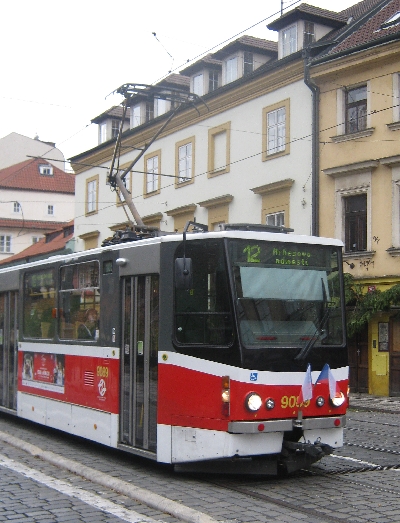
Friday 28th October 2016 – was a public holiday here in the Czech Republic, celebrating the ninety-eighth anniversary of the declaration of independence of a country that no longer exists 🙂 In the dying days of World War One, the new nation of Czechoslovakia was declared independent of the Austro-Hungarian Empire on 28th October 1918, by Tomáš Garrigue Masaryk, who then served as President of the ‘First Republic’, until 1935.
Although the state of Czechoslovakia ceased to exist on 1st January 1993, following the ‘Velvet Divorce’, the public holiday remains! Interestingly, it is no longer kept as a public holiday in Slovakia. Instead, they have double celebrations on 1st January each year, both to mark the New Year and to celebrate the establishment of the separate Slovak state, on 1st January 1993.
Inevitably, with the public holiday this year falling on a Friday, it made the perfect excuse for many Czechs, to leave the city and spend a long weekend at the chata or chalupa, out in ‘the nature’. But it was also marked by two other significant things.
As well as the official celebration of Czechoslovak Independence Day at Prague Castle, overseen by President Miloš Zeman, which was boycotted by quite a number of the ‘great and the good’ because of the recent behaviour of the President, there was a very well-attended rival unofficial celebration in Staromestské námestí/Old Town Square. And following recent new legislation, shops with a floor area in excess of 200 sq. metres, were required to be closed for the day, much to the annoyance of many retailers, who are threatening to challenge the law in the courts.

Today, Monday 31st October – is Reformation Day / Reformationstag, marking the occasion on 31st October 1517, when Martin Luther sent a letter to the Archbishop of Mainz and Magdeberg, protesting about the sale of indulgences and enclosing a document setting out his disputation with Roman Catholic teaching and practice of that time, which has become known as ‘The 95 Theses’. According to tradition – though now disputed by some scholars, he also pinned these ’95 Theses’ to the door of the Schlosskirche /Castle Church in Wittenberg, Germany.
As I explained in a blog post written four years ago, in several more Protestant German Bundesländer, each year, 31st October is kept as a public holiday. The Church of England also remembers today, ‘Martin Luther – Church Reformer’, as part of its calendar.
This year, many more people have become aware of the significance of Reformation Day, because of Pope Francis visiting Sweden, to share in two ecumenical services with members of the Lutheran World Federation, seeking to bring about reconciliation between two major strands of Christianity, after four hundred and ninety-nine years of division.
Certainly, as far as I am concerned, I am much happier celebrating the life and teaching of Martin Luther today, rather than participating in any of the stupidities that both children and adults involve themselves with marking Halloween in the USA and the UK. I am pleased to say that, despite the efforts of commercial interests and some American and British expats, Halloween is not really seen by most Czech people as part of their culture. Long my this continue!
Tomorrow, Tuesday 1st November – is All Saints’ Day, the designation now most commonly used for what was once known as All Hallows’ Day, from which the word ‘Halloween’ is derived – the eve of All Hallows’ Day. I suspect the vast majority of people dressing up in stupid costumes and encouraging children to go around frightening people, haven’t a clue as to where the name ‘Halloween’ actually comes from 🙁
In many countries, tomorrow is a public holiday, including Austria, Slovakia, Poland, and the Bundesländ of Freistaat Bayern/Bavaria, which together surround the irreligious Czech Republic, where it in NOT a public holiday. But the day is a wonderful opportunity to both remember and give thanks, for all the saints who have gone before us, and to seek to learn from and follow their examples.
In between these significant days came yesterday, Sunday 30th October. What were we to mark and celebrate at St Clement’s? Well, as St Paul bids us to do, we prayed for ‘those in authority’, in our situation, particularly for those in authority in the Czech Republic. The children and young people, in their time together, learned about Martin Luther and Reformation Day. And we gave great voice to the hymn ‘For all the saints’, to the wonderful tune, Sine nomine, by Ralph Vaughan-Williams.
But in all of this, I was also very aware of another significant date. With it being Sunday 30th October 2016, it was exactly six months until the end of my time as Chaplain of St. Clement’s, Prague, as I’ve now written to bishops and various others, stating that I will retire on Sunday 30th April 2017.

